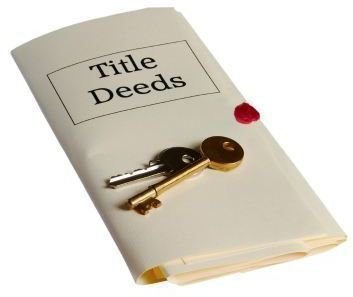Legal Issues Related to Buying & Owning a Home
Legal Challenges to Achieving the American Dream
There are millions of people who are interested in pursuing the American dream of home ownership. Recent studies by the Department of Housing and Urban Development (HUD) showed that less than 50 percent of people own their own homes in spite of record low interest rates. Home ownership still provides most with an opportunity to improve their overall financial circumstances and provides nearly everyone with a hard asset that boosts one’s overall net worth.
There are some legal challenges associated with buying, selling and owning a home. This doesn’t mean that these obstacles should prevent you from pursuing your dream of owning your home. Instead, arm yourself with the necessary information to make good decisions and if necessary, contact a qualified real estate attorney for guidance.
This collection of articles offers insight into some of the challenges that may be faced and how to overcome them in a reasonable manner. While they are not meant as a substitute for qualified legal guidance, they do provide basic information to help you make a decision as to whether legal help is needed.
<strong>Rent With Option to Buy</strong>
Some who are interested in home ownership may consider renting with an option to purchase the rental property. They believe this process may help them lower the final cost of the purchase price and result in a lower down payment. However, if the rent to own agreement does not provide specific language about the purchase, not only can the seller back out, but the rent that is paid may not be included as part of the down payment. Review the legal requirements of a rent to own agreement prior to signing it so that there are no problems during the purchasing process.
Two Contracts: Can My Seller Renege?
Contract law is very specific when it comes to contracts between buyers and sellers of homes. While a seller has the right to accept multiple bids on a property, he or she is only allowed to sign one valid contract at a time. Sellers may accept a second contract with the contingency that the contract is only valid in the event that the original contract is invalidated because the original buyer backs out, but the seller cannot renege on their contract with you without facing legal challenges.
<strong>What Legalities Are Involved With Home Inspections</strong>?
Home inspections are not required by law (depending on the municipality) during the home purchasing stage. Should a buyer decide to have a home inspection done they should make sure that the inspectors are qualified (to protect themselves) and that the inspector is insured. The seller, regardless of whether an inspection is done, has an obligation to make sure that full disclosure of known defects is made. Sellers are not legally allowed to “mask” or hide defects in the property for the purpose of making the sale.
Victimized: The Seller’s Advertisement Wasted My Time! What Can I Do?
Fortunately, truth in advertising applies to home sales. Sellers and real estate professionals cannot lure unsuspecting home buyers to a home under false pretences. Let’s face it, if you are searching for a six bedroom home and you are lured in to a two bedroom home via false advertising, you are likely to be very unhappy. However, the legal process may preclude you from taking any action unless you have purchased a home only to find out later you’ve been deceived.
I Need Time to Secure my Down Payment and Financing
Chances are that when you start the home buying process, you may have to apply for new financing and may need some time to liquidate other assets in order to come up with your down payment. Sellers are often willing to include contingency clauses in the purchase and sale agreement to

ensure that there is plenty of time to accomplish both of these processes. However, these are not the only uses for contingency clauses. Make sure you understand contingency clauses and their purpose before signing a purchase and sale agreement.
I’m Ready to Close & My Seller Is Stalling! What Now?
You have done everything right. Your down payment is complete, your loan has been approved, and all the inspections are finalized. You have given a notice at your current rental property for the end of the month and suddenly, the seller drops out of sight. Now what? There are some legitimate reasons for delays in closing from the seller’s side, but that doesn’t mean that you don’t have legal recourse.
Faulty Homes: When Your Dream Turns Into a Nightmare
In spite of how good a home looks on a visual inspection, sometimes there are significant problems including faulty wiring, plumbing or worse yet, defects with the foundations or the roofs. Fortunately, the buyer of a home is protected from purchasing a home that has serious defects, especially those which are found during inspections. Make sure that you are aware of your legal rights when it turns out that the home of your dreams could be the worst nightmare of your life.
I Closed, I Moved in, and Now I Have Major Problems: Who is Responsible?
While home inspections are supposed to protect buyers from purchasing defective homes, sometimes things do not always work out that way. Nothing is worse than moving in and discovering something horrible that should have been found during the inspection process. Make sure you know what legal recourse you have if the unthinkable occurs.
What’s This? I Bought My House - Tax Bills?
It has often been said that people spend more time investigating the purchase of an automobile than they do purchasing a home. Therefore, it’s little wonder that some homeowners are stunned when they get their first property tax bill in the mail. Any homeowner who thinks that ignoring a tax bill will make it go away should understand they are putting their home in jeopardy. Check out the legal ramifications of failure to pay property taxes.
Deeds? Titles? What Do These Documents Mean?
Home ownership has a language that is uniquely its own. A homeowner should understand these important legal documents and how each of them are used. Without a solid understanding of the legal documents that govern home ownership, you could find a problem that may need to be resolved down the road.
My Deed Says the Home Has an Easement: What’s an Easement?
The

legal description for an easement is “a right of use over the property of another. Traditionally the permitted kinds of uses were limited with the most important being rights of way and rights concerning flowing waters…” If your property was purchased with an easement, you need to know your legal rights as well as the rights of the other person (or persons) who have these rights.
It’s My Property Line: I Want To Plant Trees
Surprise! You called a local landscaper to help you develop a plan for adding some privacy and you discovered that your property line can’t be planted on. Each municipality has slightly different laws that explain what you can and cannot do on your own property line! Make sure before you sink hundreds of dollars into creating that much sought after privacy that you know the legalities.
I Rented My Property - Can the Tenant Put Rent Into an Escrow Service?
Each state has specific laws that protect renters (tenants) and landlords. If you are considering renting your home, it is your responsibility to ensure that the property remains habitable. In the event that you breach the contract with the renter, there may be cases when they can place your rent into an escrow account pending a satisfactory resolution of the problems.
The Unsatisfactory Tenant - They Live Here, How Do I Get Rid Of Them?
Unfortunately, not all landlord tenant relationships work out for everyone involved. In some cases, landlords may have no option except to evict a tenant. Eviction is a legal process and landlords must make sure they are on solid footing before they begin the eviction process. Otherwise, they may be stuck with the tenant with little or no recourse available.
<strong>Divorce Or Death: Removing Someone From a Deed</strong>
Not everything is always peaches and cream, and sometimes life throws us a curve ball. Whether your marital status is changing due to death or divorce, your property deed will have to be altered. Without taking the proper legal steps, it is possible that if you decide to sell your home later,

legal issues can stall the sale and result in a lot of additional paperwork and other legal problems. Make sure you understand what has to take place in the event of divorce or death of a co-owner.
I’m Getting Old - Can I “Sell” My House to my Kids?
While this may initially appear to be a gift issue, there are some legalities associated with gifting your home to your child (or children) or selling it to them for a token amount. Before you take this drastic step make sure that you understand how the legal process (and the taxes) work for this type of gifting or selling. Don’t get caught blindsided.
References
- Property Deed and Keys MacphersonPhoto/istockphoto.com
- Late Closing: Paul/FreeDigitalPhotos.net
- House Values - Coreay/istockphoto.com
- Home Inspection: Danilo Rizzuti/FreeDigitalPhotos.net
- Home Ownership: David Castillo Dominici/FreeDigitalPhotos.net
- US Department of Housing and Urban Development(HUD): Home Ownership Statistics Spring 2011 (PDF)
- Image credits
- Legal Dictionary: Easement
